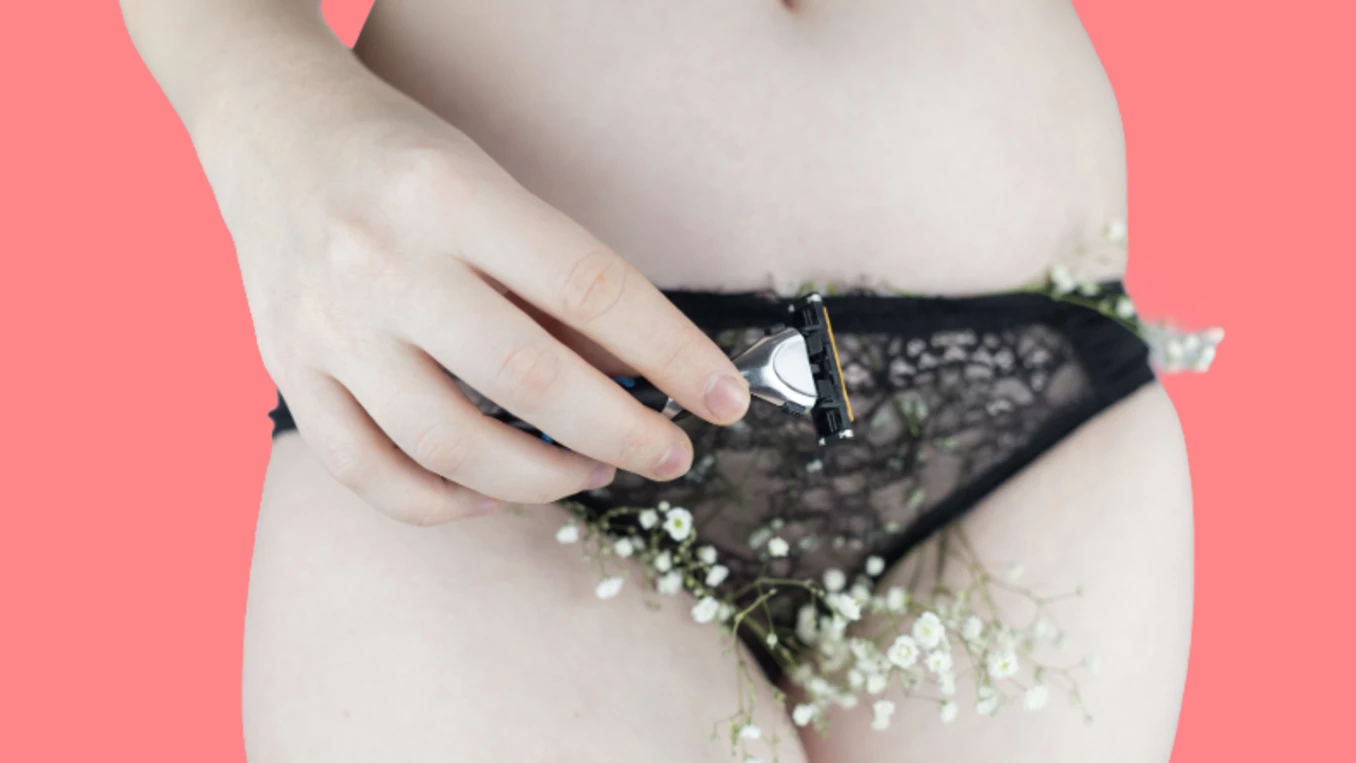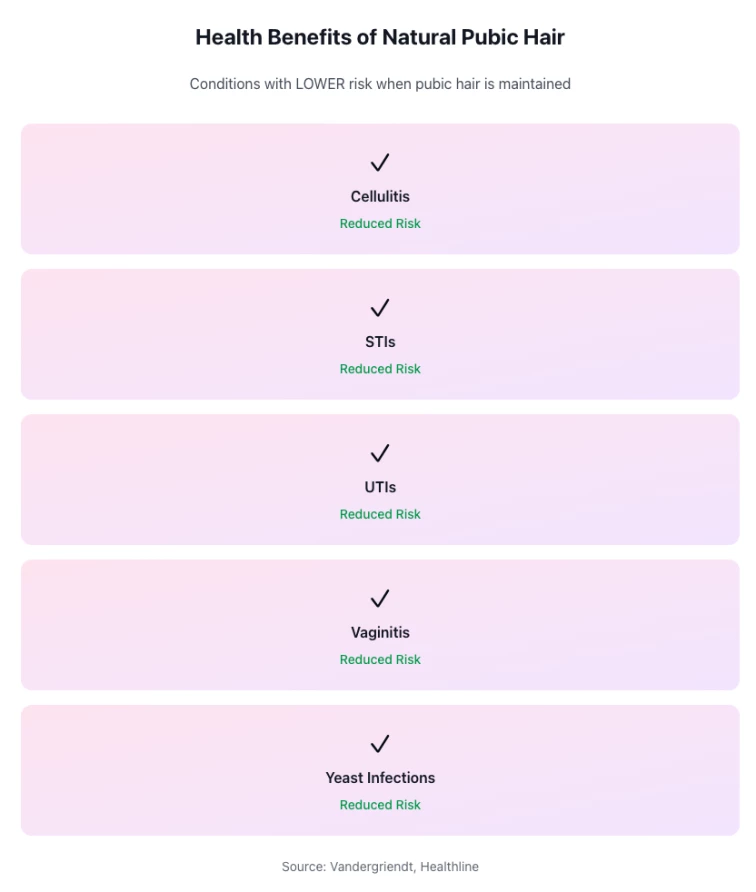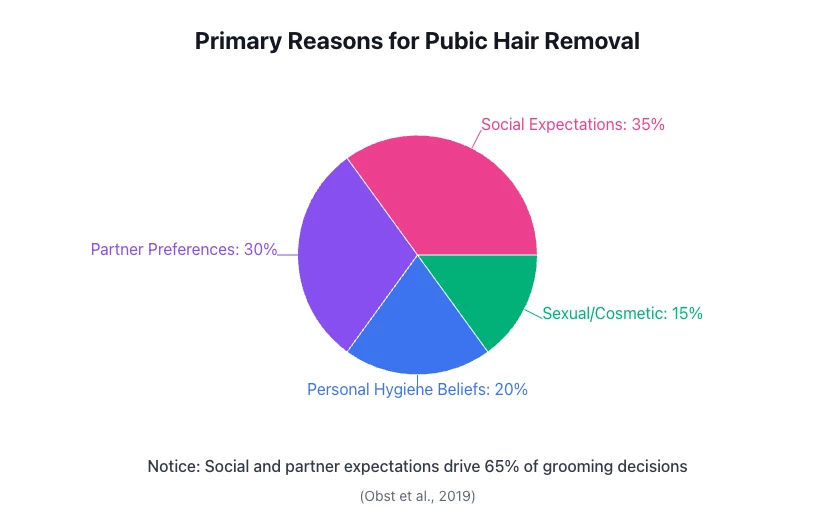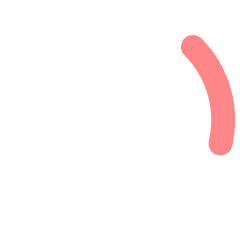Why Pubic Hair Matters: Unpacking Beauty Standards and Bodily Autonomy
- 0 Collect
- 2 Like
- 542 Read
- Report


Hello ladies, theys, and gays, welcome to another edition of Beducation, where we talk about all things sex through the lens of the female body. In today's article, we're diving deep into the biological history of pubic hair and examining how shaving has become a weaponized method of maintaining women's perceived "purity" and youthfulness.
The Statistics Tell a Story
According to Eltobgy et al. (2024), a staggering 80% of women participate in pubic grooming. These grooming practices are driven primarily by society's narrow definitions of attractiveness and femininity, with most women citing sexual and cosmetic reasons for hair removal. But this raises critical questions: When did growing out natural hair become exclusively masculine? Why is it considered "unclean" when a woman doesn't shave, but "manly" when a man doesn't?
These aren't just random preferences, they're deeply entrenched social constructs that deserve examination.
The Biological Reality: Pubic Hair Has a Purpose
Here's what the beauty industry doesn't want you to know: pubic hair is actually your body's natural defense system. According to Vandergriendt at Healthline, pubic hair serves multiple protective functions:
Prevents bacterial spread by creating a barrier against pathogens
Reduces friction during sex, making intercourse more comfortable
Decreases infection risk: Women who maintain their natural pubic hair have significantly lower rates of:
Cellulitis (skin infection)
Sexually transmitted infections (STIs)
Urinary tract infections (UTIs)
Vaginitis (vaginal inflammation)
Yeast infections
In other words, your body evolved this way for a reason. The "full bush" isn't just natural, it's protective.
Social Pressures
Obst et al. (2019) conducted research revealing that young women are increasingly pressured into removing body hair, with decisions heavily influenced by social expectations. Their findings showed:
Perceived behavioral control is a strong predictor of pubic hair removal intentions
Feminist values and ideals were negatively associated with pubic hair removal—meaning women with stronger feminist beliefs were less likely to remove pubic hair
Social influence, not personal preference, drives most grooming decisions
This research confirms what many of us suspect: we're not making these choices in a vacuum. We're responding to external pressures that tell us our natural bodies are somehow wrong.
The Uncomfortable Truth: Infantilization and the Male Gaze
While I agree that pubic hair removal among young adults is driven by social pressures, I would argue there's something even more disturbing at play: the male gaze's preference for prepubescent aesthetics.
Let me be clear: there is an element of child fetishization in the cultural obsession with hairless female bodies. The preference for no body hair directly correlates with the appearance of young females who haven't undergone puberty. This isn't coincidental, it's problematic.
Puberty as a Threat to Male Fantasy
In many cultures worldwide, pubic hair represents the biological transition into womanhood, a visible marker of sexual maturity and reproductive capability. Yet in Western culture, we've somehow decided that this natural sign of adult femininity is "unattractive" or "unhygienic."
Hairlessness maintains the illusion of youth and sexual inexperience. It allows the continued sexualization of childlike features in adult women, which should make us all deeply uncomfortable.
The Double Standard is By Design
Consider this contradiction:
Men with body hair = masculine, virile, mature
Women with body hair = unfeminine, unhygienic, unattractive
The grooming industry has convinced millions of women that their natural state is shameful, creating a multi-billion dollar market built on female insecurity. Meanwhile, male body hair remains completely normalized, even celebrated.
What This Means for Body Autonomy
The pressure to remove pubic hair isn't just about aesthetics; it's about control. When we internalize these beauty standards, we're accepting that:
Our natural bodies are unacceptable as they exist
Male preferences dictate our grooming choices more than our own comfort or health
Femininity requires modification and maintenance in ways masculinity does not
Youthfulness (read: pre-sexual maturity) is the ideal for adult women
This isn't empowerment. This is conformity dressed up as choice.
Reshaping the Bush Narrative
Here's what true bodily autonomy looks like: making grooming decisions based on your preferences, comfort, and health not societal pressure or male approval.
The point isn't to shame anyone's grooming choices. The point is to recognize when those "choices" are actually responses to oppressive beauty standards that demand women remain perpetually youth like and sexually available according to male fantasies.
Your Body Is Yours To Do What You Want With
Your pubic hair exists for biological reasons. The cultural obsession with removing it exists for ideological ones. And understanding the difference between the two is crucial for making truly autonomous decisions about your own body.
So the next time someone tells you that pubic hair is "unhygienic" or "unattractive," remember: those aren't facts. They're opinions shaped by a culture that profits from women's insecurity and discomfort with their natural bodies.
Your body isn't the problem. The beauty standards are.
Works Cited
Eltobgy, A., Aljabali, A., Farag, A., Elshorbgy, M., Hamed, M., Hamouda, E., Hamouda, H., Refaey, N., Kabeel, M., Amro, S., Abouheseba, T., & Tarek, M. (2024). Effects of pubic hair grooming on women's sexual health: a systematic review and meta-analysis. BMC Women's Health, 24(1), 171. https://doi.org/10.1186/s12905-024-02951-1
Obst, P., White, K., & Matthews, E. (2019). A full Brazilian or all natural: understanding the influences on young women's decision to remove their pubic hair. BMC Women's Health, 19(1), 164. https://doi.org/10.1186/s12905-019-0868-1
Vandergriendt, C. (n.d.). What is the purpose of pubic hair? Healthline. Retrieved from https://www.healthline.com/health/purpose-of-pubic-hair




